|
|
|
|
Nau mai, haere mai.
The commemoration of old wars is always about more than remembering the “glorious dead”, and the always sad, sometimes noble circumstances of their demise. It inevitably raises questions about the nature of a specific conflict, and about war itself.
Anzac Day in New Zealand has long been imbued with a kind of spiritual dimension beyond its martial origins. Anyone who’s attended a dawn service knows this feeling – sadness for those young lives lost, a fleeting sense of comradeship with those around you that transcends the often transactional nature of the everyday.
But it also requires an intellectual response. There is the notion of our collective coming of age, of course, and the origins of a national identity. Other than that, though, we tend not to dwell on the causes of all that bloodshed – except to mourn the pointlessness of it all from our present vantage.
As Olli Hellmann writes today, “The question of why New Zealand soldiers ended up on Turkish beaches in April 1915 is typically not part of these commemorations. Rather, our collective memories begin with the moment of the early morning landing.”
In fact, the Anzacs were caught up in wider British imperial calculations designed to hasten the collapse of the Ottoman Empire, and which still shape the Middle East today. “Most significantly,” Hellmann writes, “it is the violent conflict over Palestine that can be traced back to colonial power dealings during World War I.”
Anzac Day reminds us, then, that history is not something that can be confined to memorials and cenotaphs. It is a continuum, linking us to events before our time that nonetheless continue to define our world.
|

|
Finlay Macdonald
New Zealand Editor
|
|
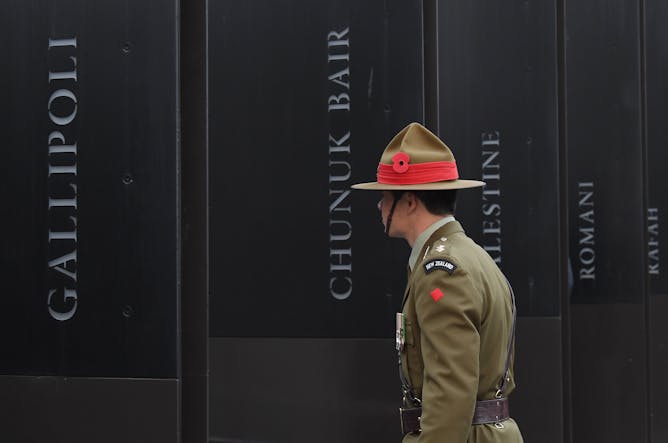
Olli Hellmann, University of Waikato
The roots of today’s Israel-Palestine crisis can be traced back to colonial power dealings during World War I – of which the Gallipoli campaign and Anzac legend are an integral part.
|
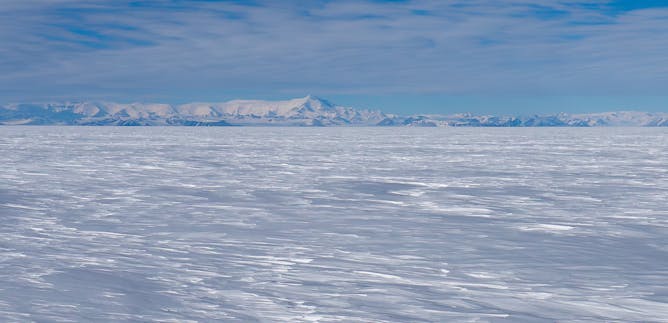
Dan Lowry, GNS Science; Holly Kyeore Han, NASA
Some 7,000 years ago, West Antarctica’s ice sheet retreated, most likely driven by warmer ocean currents slipping under the ice. This could happen again – unless we cut emissions fast.
|
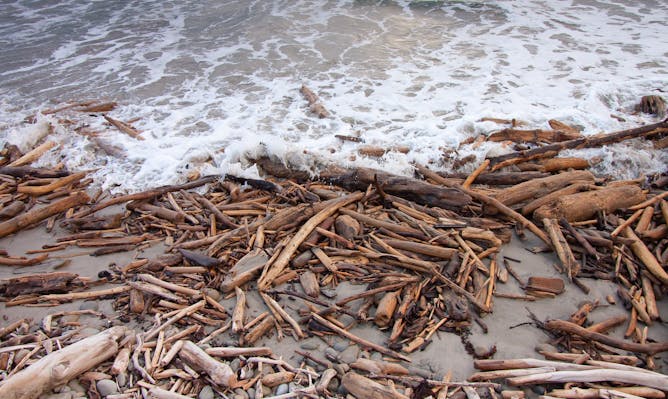
Rebecca Gladstone-Gallagher, University of Auckland, Waipapa Taumata Rau; Conrad Pilditch, University of Waikato; Simon Francis Thrush, University of Auckland, Waipapa Taumata Rau
Pollution on land inevitably ends up in the sea. Policy makers must stop working in silos and instead consider the indirect consequences human impacts on land have for marine environments.
|

Mark Rickerby, University of Canterbury
The Rotorua woman wrongly identified by a supermarket facial recognition system says ethnicity was a ‘huge factor’. Her case shows why human-centered design is needed to avoid misuse, bias and harm.
|
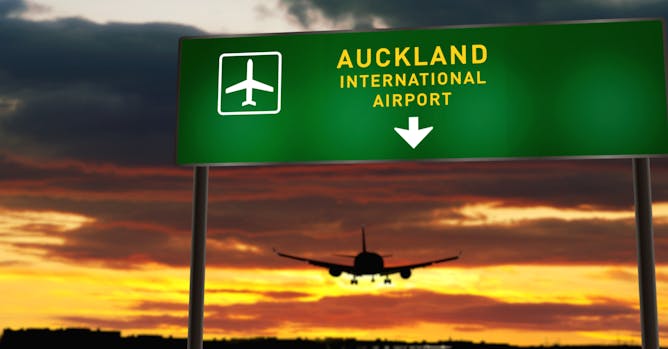
Francis L Collins, University of Auckland, Waipapa Taumata Rau
Other labour migrants in New Zealand enjoy rights broadly in line with those experienced by citizens and permanent residents – ‘low-skilled’ workers should too.
|

Robert Hamlin, University of Otago
Despite multimillion dollar price tags, rugby stadiums rarely cater to events outside of the sport. So why should communities cover the hefty bill when there is limited benefit to the wider community?
|

Tim Tenbensel, University of Auckland, Waipapa Taumata Rau
The Māori Health Authority is gone, but a law remains that puts primary focus on reducing health inequities – meaning the government may struggle to bridge the gap between rhetoric and policy priority.
|

Bronwyn E Wood, Te Herenga Waka — Victoria University of Wellington; Taylor Hughson, University of Cambridge
Key education policy decisions in the early 2000s have not produced the desired results. But broad bipartisan agreement is now needed to give children and teachers the greatest chance of success.
|

Claire Breen, University of Waikato
Punishing parents of truant children misses factors – such as poverty and hunger – keeping some children out of school.
|

Kathleen Laura Sterup, Te Herenga Waka — Victoria University of Wellington; Abigail M Smith, University of Otago
The common triplefin is helping marine scientists understand the negative effects of ‘skyglow’ on coastal fish, which are already more exposed to microplastics, chemicals and noise pollution.
|
From our foreign editions
|

Samuel Murray, University of Liverpool
In the album, Swift claims that she can use heartbreak as a stimulus for creativity, rather than allow it to dictate her everyday life.
| |
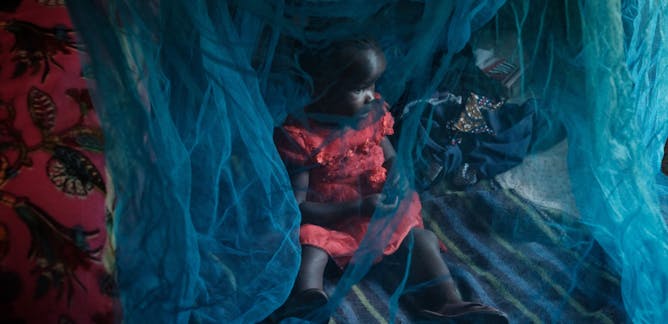
Jaishree Raman, National Institute for Communicable Diseases
Forty million children are born in malaria areas across Africa each year. Two new vaccines are important weapons in the fight against the disease.
|

Anna Andreou, King's College London
In one trial, atogepant was shown to reduce the number of migraine days a person had each month by 30%.
| |
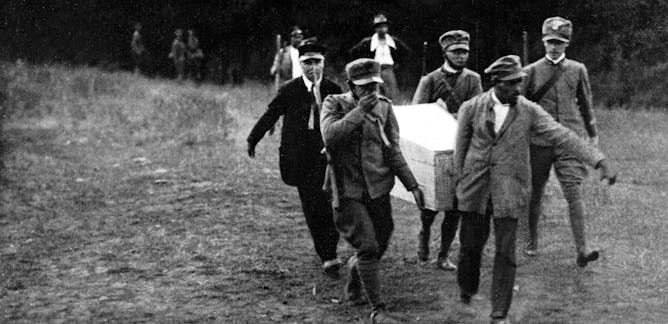
Andrea Pisauro, University of Plymouth; Gianluca Fantoni, Nottingham Trent University
One hundred years after the Italian opposition leader’s murder, documents long locked away at the London School of Economics could shed new light on Mussolini’s involvement in his death
|

Rob Nicholls, University of Sydney
The billionaire owner of X (formerly Twitter) has taken aim at Australia’s eSafety Commissioner over being told to remove videos from his site. It’s just the tip of the legal iceberg.
| |
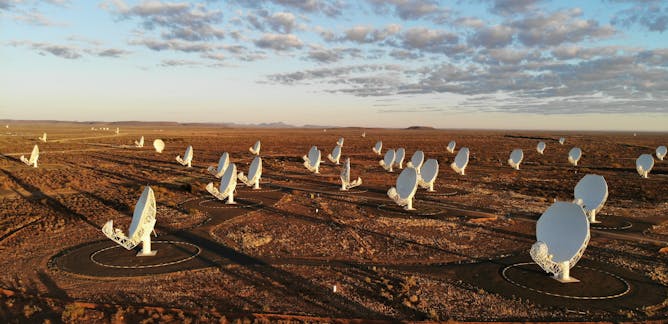
Ed Elson, University of the Western Cape
MeerKAT has made remarkable contributions to South African and international science.
|
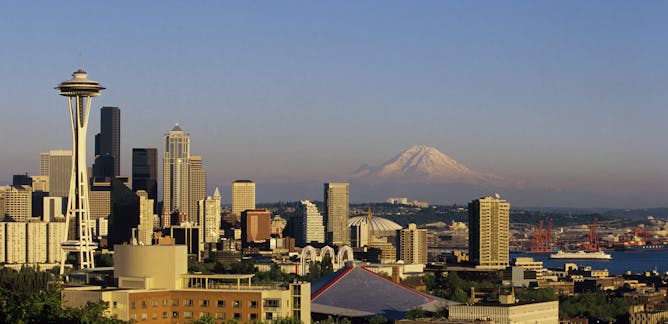
Serin Houston, Mount Holyoke College; Dan Trudeau, Macalester College
Ending institutional racism is a long-term goal and requires well-informed and engaged people to remake systems and structures
| |
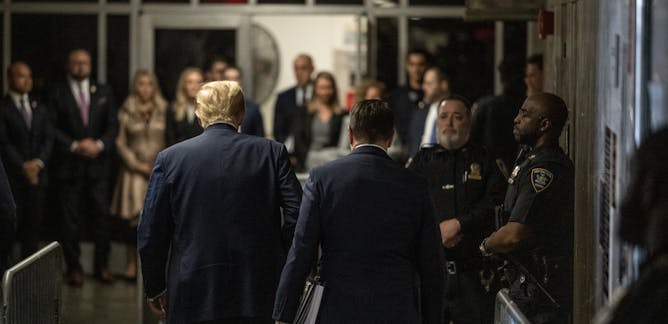
Ronald S. Sullivan Jr., Harvard University
What I teach Harvard Law School students about the importance of opening arguments and how a majority of jurors make up their minds about a case after hearing them.
|
|
|
| |
| |
| |

|
| |
| |
| |
| |
| |
| |
|
|
|
|
|
|
|